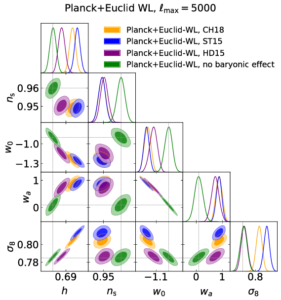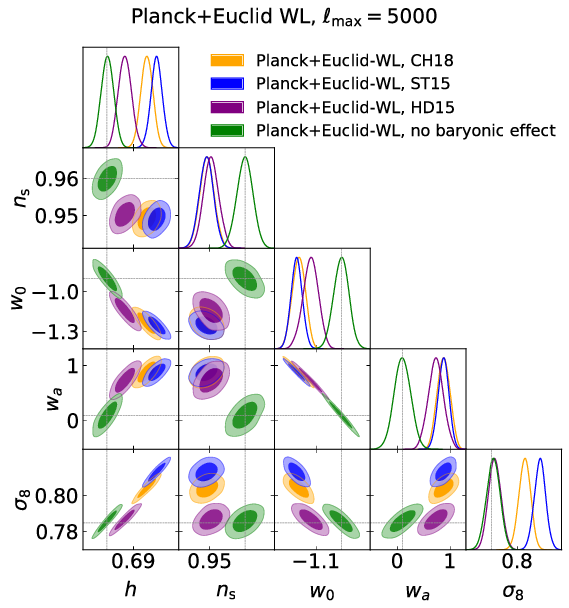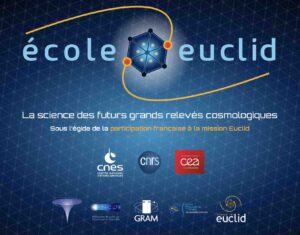Abstract
Upcoming surveys will map the growth of large-scale structure with unprecented precision, improving our understanding of the dark sector of the Universe. Unfortunately, much of the cosmological information is encoded by the small scales, where the clustering of dark matter and the effects of astrophysical feedback processes are not fully understood. This can bias the estimates of cosmological parameters, which we study here for a joint analysis of mock Euclid cosmic shear and Planck cosmic microwave background data. We use different implementations for the modelling of the signal on small scales and find that they result in significantly different predictions. Moreover, the different nonlinear corrections lead to biased parameter estimates, especially when the analysis is extended into the highly nonlinear regime, with both the Hubble constant, H0, and the clustering amplitude, σ8, affected the most. Improvements in the modelling of nonlinear scales will therefore be needed if we are to resolve the current tension with more and better data. For a given prescription for the nonlinear power spectrum, using different corrections for baryon physics does not significantly impact the precision of Euclid, but neglecting these correction does lead to large biases in the cosmological parameters. In order to extract precise and unbiased constraints on cosmological parameters from Euclid cosmic shear data, it is therefore essential to improve the accuracy of the recipes that account for nonlinear structure formation, as well as the modelling of the impact of astrophysical processes that redistribute the baryons.




